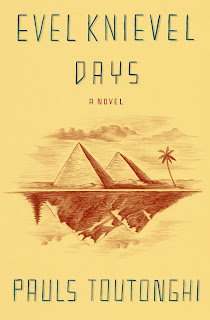On the door it says what to do to survive
But we were not born to survive
Only to live
—W. S. Merwin
So many piles of leaves are walking about these days
disguised as humans it must give pause.
Originally we meant only to fool ducks, dupe deer
into posing like St. Sebastian, but now it looks
like we are hiding from other heaps that mean harm,
that mean to steal us from our families and lovers
or steel us against the unhappy prospect of quaking
like so many aspens in the arms of winter.
Or is it simply that we mean to advertise a sincere
wish to become one with nature and quietly disappear
toting our taped and silenced M-16’s and Mini-14’s
and other automatic acronyms of extreme prejudice?
There is big business in camouflage these days.
We can be anything we want to be at last!
A summer wood, an autumn wood, a big beige desert.
We can even be dead grass, we can be snow.
And let me not fail to mention our latest fashion,
Night. Night is very popular these days.
What we do not want to be is colorful, color is
suspect, a thing of the past, except for a week or
maybe two weeks in spring, during the spring offensives,
when even the desert forgets itself and laughs floridly.
Then it is safe to be a field of poppies.
But we must never forget the latest heat-seeking
technologies that have kept pace with our trade.
Telescopes so powerful they are capable of detecting,
at incredible distances in the coldest environments,
the smallest trembling heart of a mouse, o soldiers of
fortune and misfortune, they mean to find us out,
to discover in our iciest resolve a spot of warmth.
* * * * *
Henry Carlile has lived his life in the Pacific Northwest and his poetry is often set here.
His collections include The Rough-Hewn Table (1971), winner of the Devins Award; Running Lights(1981); and Rain (1994).






